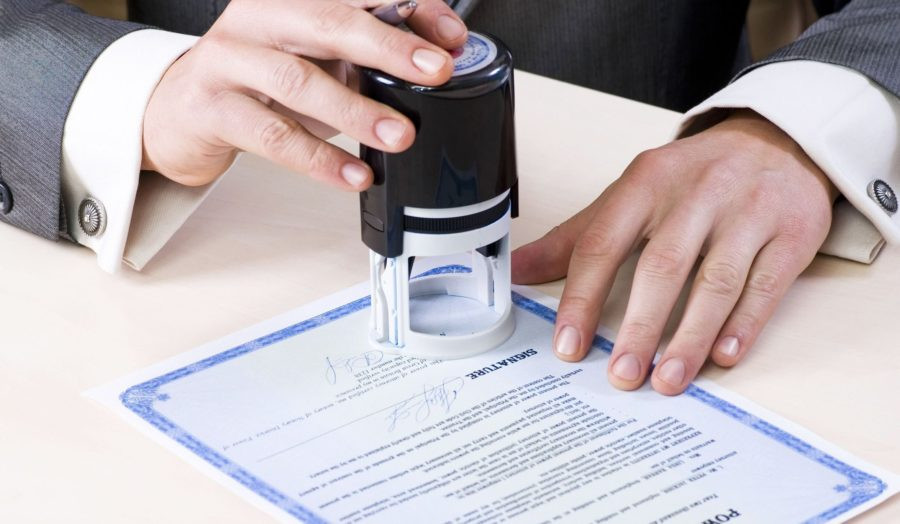Lawyer, graduated from the National University "Odesa Law Academy" with honors. Since 2017, I have been specializing in legal and educational and general legal issues. I am the author of legal articles, scientific publications and articles in the educational environment. Mentor of the "Veritas" legal clinic. The owner of the legal blog "Educational_law_ua" on Instagram.
A power of attorney is a legal document that allows one person (the principal) to grant authority to another person (the agent) to act on their behalf. This document is an important instrument for carrying out various actions in legal and civil life, from entering into agreements to managing property. In this article, we will discuss how to properly issue a power of attorney, the requirements for its content and form, as well as the types of powers of attorney.
Main requirements for issuing a power of attorney
Issuing a power of attorney requires adherence to certain formal requirements, which depend on the type of power of attorney and specific circumstances. The main requirements include:
- Written form: A power of attorney must be drawn up in writing. In most cases, an oral power of attorney has no legal effect.
- Identification of parties: The power of attorney must clearly specify the principal and the agent with their full names and identification details (passport data, identification number, etc.).
- Subject of the power of attorney: The specific actions that the agent is authorized to perform on behalf of the principal must be clearly stated.
- Term of validity: A specific term of validity of the power of attorney must be indicated. If the term is not specified, it is considered that the power of attorney is valid for one year from the date of issuance.
- Signature of the principal: The power of attorney must be signed by the principal. If the principal cannot sign personally, another person can do so in the presence of a notary public.
- Notarial certification: Some types of powers of attorney require mandatory notarial certification.
Types of powers of attorney
Powers of attorney are divided into several main types, depending on the scope of authority granted and the purpose of their issuance:
- Single-use power of attorney: This power of attorney is issued for the performance of a single specific action, such as obtaining a particular document or signing a specific agreement.
- Special power of attorney: The power of attorney is issued to perform several similar actions. For example, representing interests in court within the framework of a specific dispute.
- General power of attorney: Grants the agent broad authority to perform various actions on behalf of the principal. It may include property management, representation in various institutions, and so on.
Procedure for issuing a power of attorney
- Preparing information: First, gather all necessary information about the principal and the agent, and clearly define the scope of authority granted to the agent.
- Drafting the power of attorney: The power of attorney can be drafted independently or with the assistance of a lawyer. The document must clearly state all the requirements mentioned above.
- Signing the power of attorney: The principal signs the power of attorney. If the document requires notarial certification, the signing takes place in the presence of a notary public.
- Notarial certification: The notary verifies the identity of the principal and the agent, the authenticity of the signatures, and other formal aspects, after which the power of attorney is certified with the notary's signature and seal.
Features of notarial certification
Some types of powers of attorney require mandatory notarial certification, such as powers of attorney for the disposition of real estate, vehicles, opening and closing bank accounts, and so on. The procedure for notarial certification includes:
- Document verification: The notary verifies the personal documents of the principal and the agent.
- Reviewing the power of attorney: The notary carefully reads the power of attorney, checks the correctness of the wording, and compliance with legal requirements.
- Signature attestation: The principal signs the power of attorney in the presence of the notary. The notary, in turn, certifies the authenticity of the principal's signature.
- Registration: The notary enters the data on the power of attorney into the relevant register, providing an additional level of protection against forgery.
Revocation of power of attorney
The principal has the right to revoke the power of attorney at any time. To do this, it is necessary to:
- Written statement: Prepare a written statement of revocation of the power of attorney. The statement must be notarially certified.
- Notification of the agent: The principal is obliged to notify the agent of the revocation of the power of attorney.
- Notification of third parties: If the agent has already started performing the powers granted, the principal must also notify all interested third parties of the revocation of the power of attorney.
Conclusion
In this way, a legal conclusion can be made that a power of attorney is an important legal document that allows you to delegate certain powers to another person. When drawing up a power of attorney, it is necessary to comply with the established requirements for its content and form, as well as take into account the specifics of a particular type of power of attorney. Therefore, in this case, you may need written advice from a lawyer's consultation or the help of a lawyer online. Analysis of documents and legal analysis of the situation establishes that a notary certificate is mandatory for some types of powers of attorney, which provides an additional level of protection of the principal's rights. Timely cancellation of the power of attorney in the event of a change in circumstances or loss of trust in the authorized person is an important aspect of protecting the principal's interests.

































